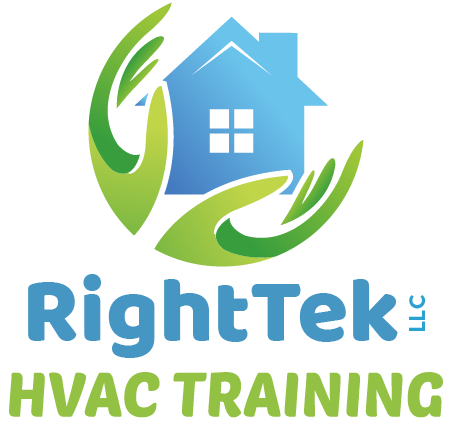The HVAC industry is currently experiencing robust growth, driven by increasing demand for heating, ventilation, and air conditioning services. According to a recent Jobber study on the HVAC industry, this positive trend is expected to continue, with homeowners and businesses prioritizing comfort and energy efficiency. However, this growth brings with it a set of challenges, including a shortage of skilled technicians and the need for ongoing adaptation to new technologies. Training programs like those offered by RightTek HVAC are playing a crucial role in preparing the next generation of HVAC professionals to meet these challenges head-on.
Growing Demand for HVAC Services
The demand for HVAC services is on the rise, fueled by several factors, including new construction, the need for system upgrades, and a heightened focus on energy efficiency. As more consumers and businesses seek to improve their indoor environments and reduce energy consumption, the HVAC industry is poised for continued expansion.
This growth is creating a wealth of opportunities for HVAC professionals, particularly those equipped with the latest skills and knowledge. However, the industry’s rapid evolution also underscores the importance of specialized training to keep pace with technological advancements and changing customer expectations.
The Impact of Technological Advancements
Advancements in HVAC technology, such as smart systems and energy-efficient units, are revolutionizing the industry. These technologies not only improve system performance but also align with the growing consumer demand for sustainability. As HVAC companies adopt these innovations, the need for technicians who can install, maintain, and troubleshoot these advanced systems is becoming increasingly critical.
RightTek HVAC, a leader in HVAC training, ensures that its students are well-versed in the latest technologies, preparing them to meet the demands of a modern HVAC workforce. This focus on technology is essential for professionals who want to stay competitive in an industry that is rapidly embracing digital and energy-efficient solutions.
Environmental Sustainability and the HVAC Industry
Environmental concerns are driving a significant shift towards energy-efficient and eco-friendly HVAC systems. As regulations tighten and consumers become more conscious of their environmental impact, the demand for sustainable HVAC solutions is expected to grow.
RightTek HVAC integrates sustainability into its curriculum, teaching students about the latest green technologies and practices. By equipping technicians with this knowledge, RightTek HVAC is helping to ensure that the industry can meet both current and future demands for environmentally responsible HVAC solutions.
Addressing the Workforce Shortage
While the HVAC industry’s growth presents many opportunities, it also highlights a critical challenge: the shortage of skilled technicians. This gap is particularly evident in regions like Wake County, North Carolina, where nearly half of the HVAC positions in schools remain unfilled. This shortage underscores the need for comprehensive training programs that can quickly and effectively prepare new technicians to enter the workforce.
Training institutions like RightTek HVAC are essential in addressing this shortage, providing the hands-on experience and technical knowledge needed to succeed in the field. As the demand for skilled HVAC professionals continues to rise, the role of such training programs will only become more important.
Conclusion
The HVAC industry is on an upward trajectory, with strong growth fueled by increased demand for services, technological advancements, and a shift towards sustainability. However, this growth also brings challenges, including a shortage of skilled workers and the need for continuous education. Training programs like those offered by RightTek HVAC are crucial in preparing professionals to meet these challenges and capitalize on the opportunities within this dynamic industry. As the industry evolves, the future looks bright for those who are ready to embrace change and innovate.

